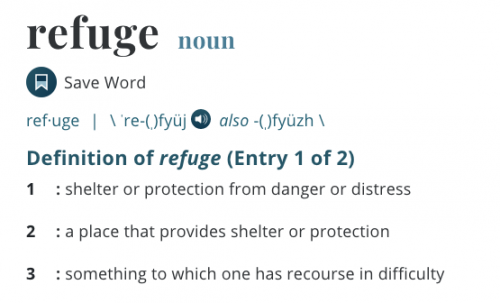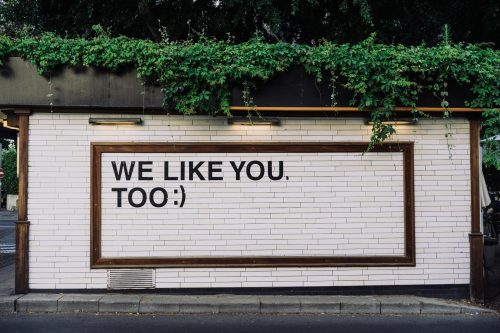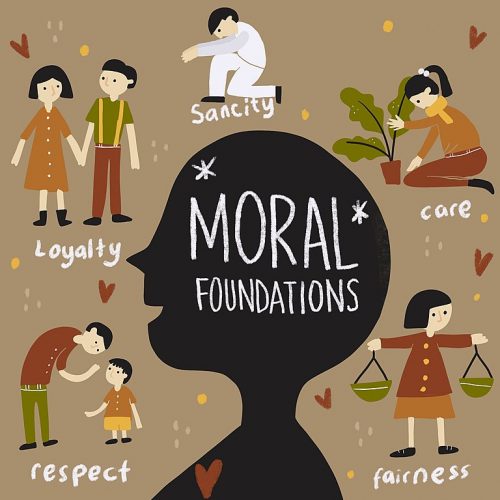We live in a society of “othering”, a time in which it’s easy to look at “them” and see people as fundamentally flawed. The words “morally bankrupt” seems to describe a massive swath of the people in the public eye. Part of my mental labour as of late has been about squaring the circle between believing in truth and accepting that perspective influences truth. That and its relationship to this thing called “compassion”.
Moral Foundations
There’s a book I haven’t read called The Righteous Mind: Why Good People are Divided by Politics and Religion. Its author, Jonathan Haidt is one of the psychologists who established the “Moral Foundations Theory”, a theory which defines the roots of a person’s moral reasonings. In it, the author details three types of ethical perspectives that people tend to hold as the cornerstone of their morals*:
An Ethic of Autonomy (Individualism)
This perspective is that individuals, with their own wishes, desires and needs come first. Societies that believe in individualism put personal rights and freedoms at the center of their justice systems
An Ethic of Community (Collectivism)
This perspective believes that community comes first. Respect and responsibility for others are tightly bound with reputation and patriotism. An individualist lifestyle is seen as egocentric and dangerous.
An Ethic of Divinity (Spiritualism)
People with this perspective believe that the human body contains a soul, ordained by a divine power. Their morals contain ideas of holiness and sin, cleanliness and contamination, honour and dishonour.
Moral Reflection
It’s easy for those of us with a particular moral foundation to disavow the reasonings of others, but it’s also easy for us to forget that our societies are complex enough to deserve contextual decision making.
As I reflect on my own ethics, I realize that I flow quite easily between all three perspectives. However, my foundation is clearly in collectivism. In my case, there’s an interesting connection here between collectivist morals and gendered upbringing but that would be its own post. In any case, as with most “established in childhood” psychological patterns, my moral foundation of collectivism has tints of the other ethical directions and does not exist in a vacuum.
I do find it a bit silly to believe that your little snowflake self is somehow more important than anyone else. However, I sometimes get caught in my own ego. I see clear patterns of autonomous moral structures in movements that claim to be collectivist. I recognize them in myself. Western society pushes individualism in no small way.
Spirituality as a moral basis I find problematic. I’m agnostic on that whole divine power thing, and Man is a real tool. It is Man who wrote the words of God. Man who interprets them. Man who ultimately ignores the divinity of the other. See: the Crusades and every other “holy” war that was actually just othering anyone who believed something different. Yet, I still reflect on holy texts (see below). I follow morals from my distant and latent Christianesque childhood as well as religious ideas from all shapes and sizes of belief.
Finding refuge

In Buddhist philosophy/religion, there are “the three refuges”*:
Buddha (Awareness, Mind)
Buddha refers to the “Enlightened One” and is about the awareness of your mind. Knowing that you are living in an experience that is coloured by your past experiences. Seeing a society influenced by individual experiences. Acknowledging the mind’s ability to twist your experience with its never-ending interpretations of that and all other experiences.
Dharma (Truth, Speech)
This is about the “right” way of living, which as religion would have it, according to Buddhism is the way of the Buddha. I interpret Dharma more broadly as “truth” and as experiencing reality for what it actually is. This refuge is about being present and removed from the emotional and cultural subtexts that tend to leak into our daily lives. The speech bit is about speaking your truth.
Sangha (Love, Body)
This refuge is about the reality of the community of which we are all a part. We’re humans and living beings. We share a planet and we’re all made up of the same basic components. This refuge is about respecting that and experiencing our connectedness through our bodies.

Bringing moral and refuge together
If I look at the current state of the world while taking refuge in my solitude, I might give myself a framework and energy for dealing with our current predicaments. In all our global narratives, we need to be able to formulate narratives that speak to “the others”. I’m saying it because although there seem to be a lot of fascists running around at the moment, the truth is that many of the “others” are not actually fascists, but rather have a different ethical perspective.
It seems important to note that I’m in no way making excuses for the nazi, conspiracy theorist morons who are emboldened by that one orange guy or Q. I’m simply pointing out that it’s not prudent to think that the 70+ million people who voted for T**** in 2020 are all fascist. Not all of “the masses” are stupid, and the attraction of (what I consider to be) bonkers mad perspectives are simply attractive stories.
Acknowledging complexity

It isn’t helpful at a societal level to claim intellectualism and then refuse to use it in a current cultural context. It isn’t innovative to cater only to the people already in your tribe when we’re dealing with the climate emergency or the pandemic or any of the other global issues we share.
I need to understand how to balance between the acceptance of other people’s moral reasonings and my ideas of the consequences people who show disdain for the collective deserve. Not that it’s my right or calling to inflict consequences, but I find my opinions unforgiving a lot of the time. Every “side” pushes extremes that reflect conflicting values. I have conflicting values and so do you. It’s pretty human.
In short, as an activist, I’m eager to figure out how I can assist our severely splintered society. I want to do better at not alienating people and helping people transition to a better world. I want to help people see the benefits of a healthy planet, a healthy workplace, a healthy society. My first step is to check my assumptions and biases by giving myself a bit of refuge from everyone else’s assumptions and biases.
*I don’t know much about anything, and certainly not any religion or spiritual practice. I was listening to this meditation and ideas of Buddhist refuges and moral foundations crashed together in my brain.
*As I’ve not read the book, I’ve relied on the description of the three ethical directions from this post.

